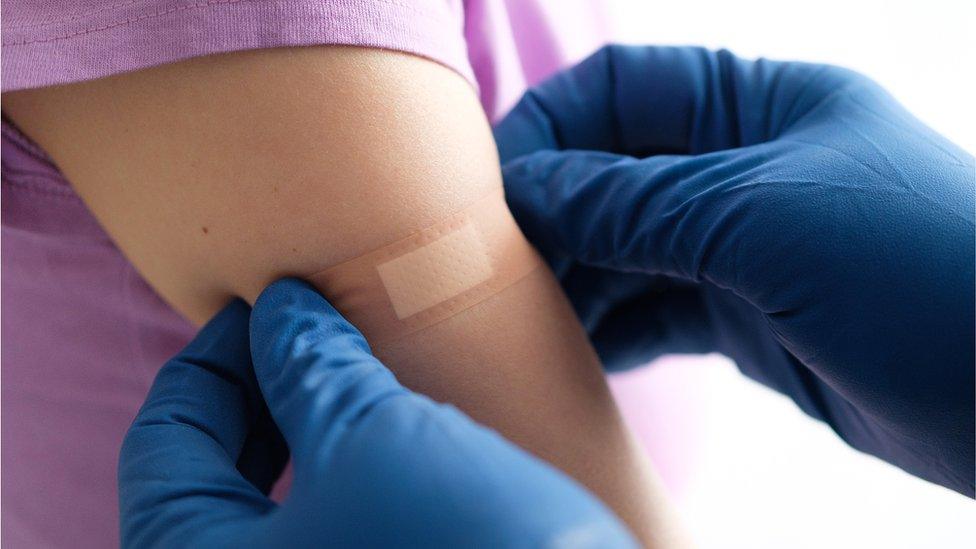Covid-19: Swann warns against 'rushed' decision on Covid tests
- Published
- comments
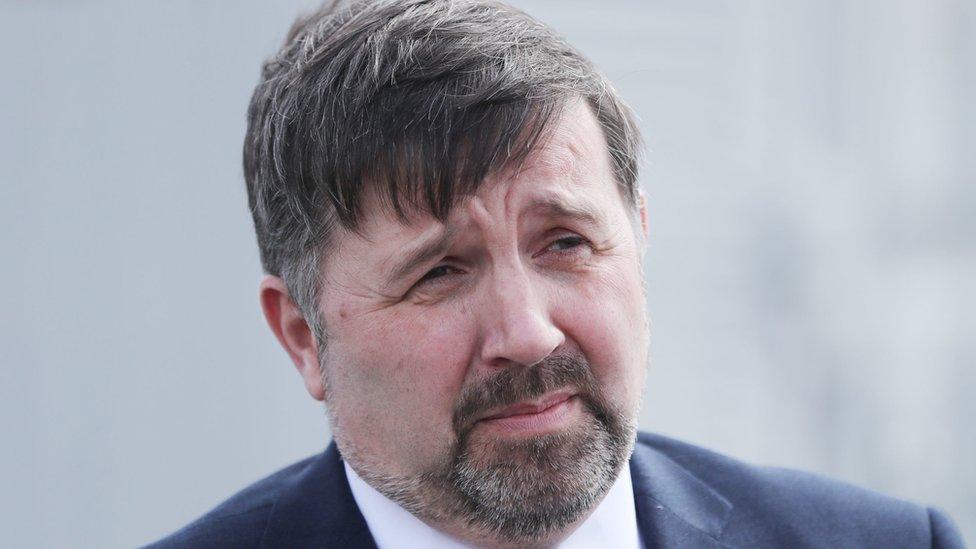
Health Minister Robin Swann has said he will not be "rushed" into taking decisions on rules around the use of free mass testing in Northern Ireland.
The government in England plans to bring it to an end from 1 April.
The DUP MP Sammy Wilson said Northern Ireland should be following Number 10's lead, but Sinn Féin, Alliance and the SDLP have urged caution.
In a tweet, Mr Swann said he would not base his decisions on "timetables elsewhere".
"I have asked officials to draw up policy options based on an appropriate, proportionate approach to testing in NI. In the meantime, there will be no changes to the current approach," he said.
Allow X content?
This article contains content provided by X. We ask for your permission before anything is loaded, as they may be using cookies and other technologies. You may want to read X’s cookie policy, external and privacy policy, external before accepting. To view this content choose ‘accept and continue’.
Mr Swann added that testing "will continue to have a role, especially in protecting the most vulnerable", and that further discussions on funding would be required with London and his Stormont ministerial colleagues.
Speaking at Stormont on Tuesday, Finance Minister Conor Murphy said he wanted free testing to continue but it would come at a cost.
"We have to make a decision do we try and provide our own supply and the cost of that, in a situation where we can't take budgetary decisions, where departments only have the baseline they have to spend into the new financial year because of the absence of the executive.
"That makes it infinitely more difficult."
Political opinion divided
Northern Ireland's Infrastructure Minister Nichola Mallon said it would wrong for Northern Ireland to bring an end to free testing.
Justice Minister Naomi Long said it was important that people are supported financially to test and self-isolate if required.
However DUP MP Sammy Wilson said Northern Ireland should follow England's move.
He described the recent strains of the virus as being similar to the impact of the common flu and that Northern Ireland should change test and trace procedures.
"We don't do that kind of extensive test and trace for common flu, we don't ask people to self-isolate immediately, we don't ask businesses to be disrupted as a result of that.
"We ask people to engage in common sense.
"Test and trace was introduced at a time when we didn't have all of the means to combat Covid that we do today."
Ms Mallon said testing was "an important means of controlling transmission".

The UK Treasury would save billions of pounds by scrapping or reducing the number of free tests
"Now to be saying, particularly to low income families, that they will have to pay for that is deeply, deeply concerning," said the Social Democratic and Labour Party (SDLP) minister.
The justice minister said whether it is Covid-19 or other conditions, people should "not be going into the workplace ill and passing it on to colleagues who may be vulnerable or have vulnerable members of families".
"But for people to make that choice, they have to be able to test, they have to know they're unwell and have financial support to let them self-isolate," said Mrs Long.
From Thursday, people with a positive Covid-19 test in England no longer legally need to self-isolate and routine tracing will end.
Remaining Covid restrictions are also being lifted in England, and free mass testing will stop from 1 April.
'Ignoring a problem'
Dr David Farren, from the British Medical Association (BMA) in Northern Ireland, said free testing should remain and the government's decision could "come back to bite us".
"Testing people and isolating them is the way you stop the bug from jumping from one person to another and effectively the prime minister has removed two very important protections in England with that move," he told BBC Radio Ulster's Good Morning Ulster on Tuesday.
The infection control doctor said there could be "further spread" because people may not be able to afford tests or take time away from work.
This risked creating a "two-tier" health system, he added, "the like of which we haven't seen within our NHS".
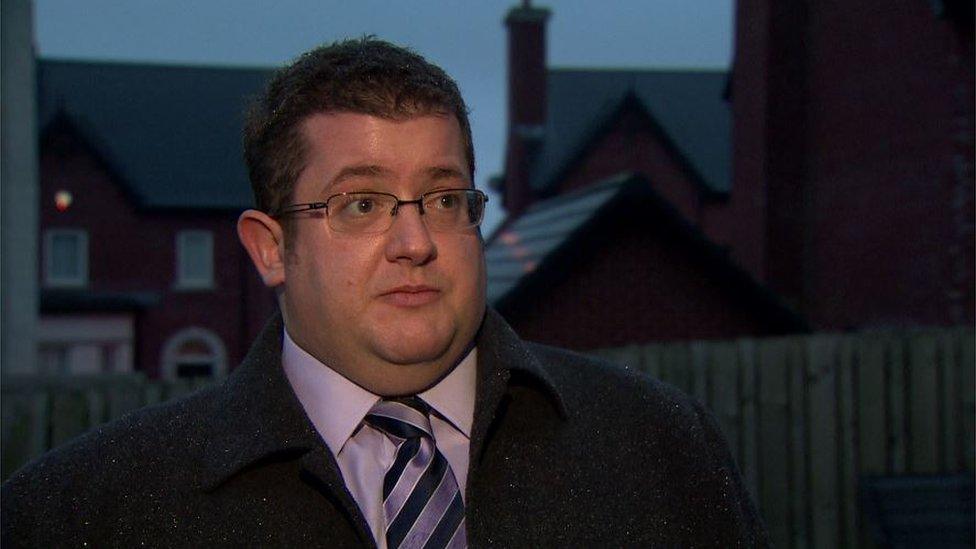
Dr David Farren said it was wrong to ask people to pay for Covid-19 tests
Patricia McKeown, from the trade union Unison, said the pandemic had highlighted the importance of sick pay.
But Roger Pollen, from the Federation of Small Businesses, said there was a need to "learn to live with" coronavirus and ending testing "is a choice about how we spend taxpayers' money".
More booster vaccines
Meanwhile, the head of Northern Ireland's vaccination programme, Patricia Donnelly, said mass vaccine centres will not be needed for the next roll-out of the Covid jab.
Over the course of the pandemic, mass vaccination centres were set up across Northern Ireland to administer Covid-19 vaccines on larger scales at locations including the SSE Arena and the Titanic Exhibition Centre in Belfast.
Ms Donnelly also said health officials in Northern Ireland expect the roll-out to be extended to over-50s in autumn and "are planning for it".
She said it had been expected there would be an annual vaccination programme, similar to how the flu vaccine is rolled out.
Additional vaccines being made available for those aged 75 and over in 2022 could be facilitated by GPs, community pharmacies and health trusts, she said.
Patricia Donnelly said additional jabs could be facilitated by GPs, community pharmacies and health trusts.
About 155,000 people will be eligible for the booster jab, with the roll-out expected to begin in April.
There must be a gap of at least six months since a previous dose.
Those eligible for the booster vaccine are:
adults aged 75 and over
older adults in care homes
people aged 12 and over with a weak immune system
On Monday, Stormont ministers held talks with the UK government about future funding to fight the Covid-19 pandemic.
At the weekend, ministers from Northern Ireland, Scotland and Wales wrote a joint letter to Michael Gove expressing fears that funding for testing was about to be cut.
Related topics
- Published21 February 2022
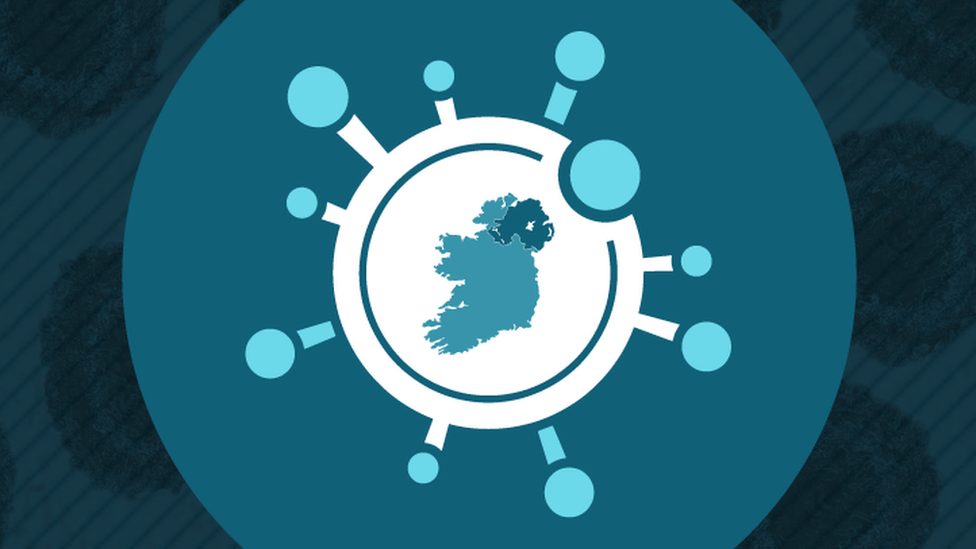
- Published21 February 2022

- Published16 February 2022
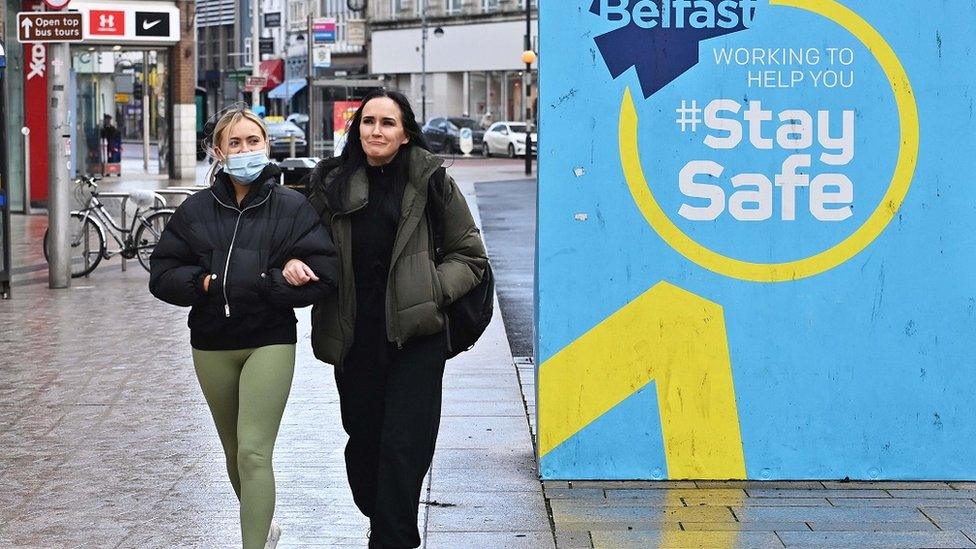
- Published16 February 2022
